
Many, many years ago my wife, The Duchess, wanted to get a dog. I'd never had a dog, and my concept of dog ownership was limited to the knowledge that dogs needed to be walked, and The Duchess, being fancy, was never going to do the dogwalking. I pictured myself out in the midst of a blizzard picking up dog poop while she lounged at home in front of a raging fire, probably drinking brandy or something. So, I advocated for a cat instead: I'd had a cat as a child, a marshmallow-esque tabby inexplicably named Missy who was so low-maintenance it's possible I imagined her. So, once again, I thought I'd outsmarted my wife.²
We adopted a sickly tuxedo cat we named Pierre. Not long after, The Duchess turned to me and said, "We've had one cat, yes. What about the second cat?" And that is the story of how I came to have five chaotic cats prowling around my house instead of one orderly dog.³
A few years ago, I decided to finally find ways to monetize those cats. My initial efforts involving a Cat Circus ended in failure and property damage. So, I pivoted to my only skill and started writing stories about the furry little demons. I wound up writing an entire story cycle featuring cat detectives solving dark, violent crimes; I've published a few of them.5 All writing is also a learning experience, and what I realized while working on these stories is simple: Writing animal characters can go wrong in many, many ways.
Neither Cute Nor Cuddly
There's an ancient tradition of animal characters in literature, and some folks automatically think of Disney animation and the cozy creatures found in children's stories like Winnie-the-Pooh. But you'll find animals from all over the anthropomorphic scale throughout literature, some quite dark and many amounting to very realistic depictions.
هذه القصة مأخوذة من طبعة July - August 2024 من Writer’s Digest.
ابدأ النسخة التجريبية المجانية من Magzter GOLD لمدة 7 أيام للوصول إلى آلاف القصص المتميزة المنسقة وأكثر من 9,000 مجلة وصحيفة.
بالفعل مشترك ? تسجيل الدخول
هذه القصة مأخوذة من طبعة July - August 2024 من Writer’s Digest.
ابدأ النسخة التجريبية المجانية من Magzter GOLD لمدة 7 أيام للوصول إلى آلاف القصص المتميزة المنسقة وأكثر من 9,000 مجلة وصحيفة.
بالفعل مشترك? تسجيل الدخول

Writing for a Warming World - Imagining the overwhelming, the ubiquitous, the world-shattering.
Climate change is one of those topics that can throw novelists—and everyone else—into a fearful and cowering silence. When the earth is losing its familiar shapes and consolations, changing drastically and in unpredictable ways beneath our feet, how can we summon our creative resources to engage in the imaginative world-building required to write a novel that takes on these threats in compelling ways? And how to avoid writing fiction that addresses irreversible climate change without letting our prose get too preachy, overly prescriptive, saturated with despair?

Kids' Author Meg Medina Inspires Readers
WD chats with the National Ambassador of Young People’s Literature.
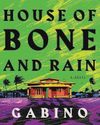
The Horrors of Grief
Whether hot off the presses or on the shelves for years, a good book is worth talking about.
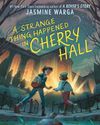
The Mystery of Growing Up
New York Times-bestselling author Jasmine Warga tackles a new genre with her signature blend of empathy for her readers, agency for her characters, and the belief that art is the great connector.

Education
Even if it's not your thing, you're probably familiar with the term dark academia.

A Do-Over Romance
Karin Patton, the first-place winner of the 24th Annual Writer's Digest Short Short Story Awards, shares a funny story about secondchance love and a brief Q&A.
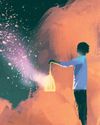
Everyday Wonder
How to mine awe from the mundane
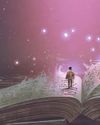
From Ordinary to Extraordinary
Unveil the hidden beauty in the facts and transform your nonfiction with the power of wonder.

Childhood: Our Touchstone for Wonder
How to get in touch with Little You and create big new work for today.
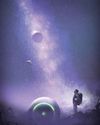
Agent Roundup
22 agents share details, about what kind of writing will pique their interest and offer tips for querying writers...